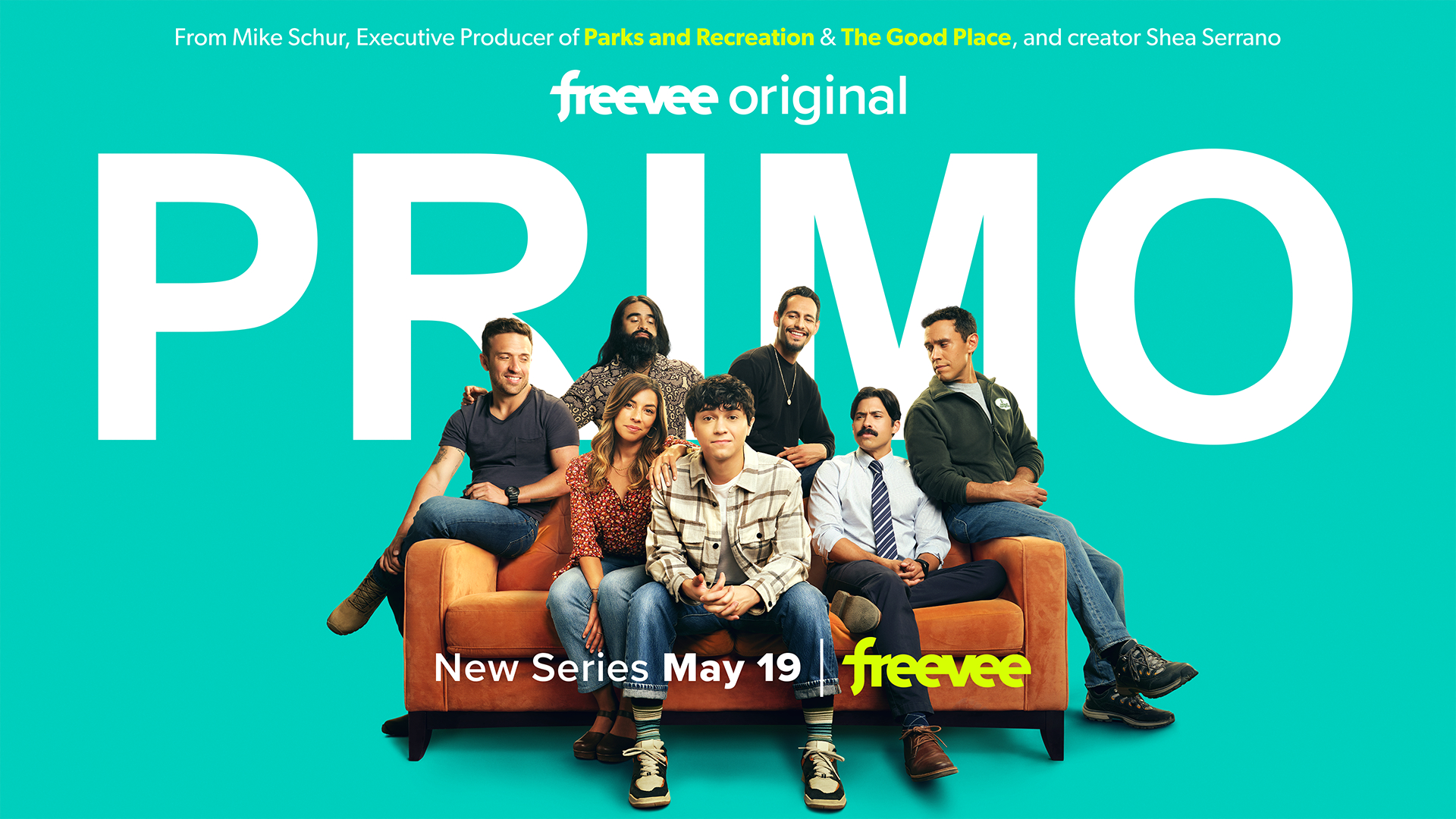If Hulu’s This Fool and Netflix’s On My Block had a baby, it would be Primo. Based on show creator Shea Serrano’s life, this new Latinx family sitcom follows a single mom and five uncles who try their best to help raise Rafa aka the “Primo” of our show.
Between the adult sibling dynamics and the coming-of-age teen group, this show bridges the Millennial and Gen-Z Latinx family gap. But what I loved most about Primo was the different forms of machismo and the subtle scenes that showed how much emotional immaturity can become an unnecessarily heavy burden on chingona matriarchs.
The Uncles and Machismo

As Rafa (played by Ignacio Diaz-Silverio) navigates high school decisions like the sixteen-year-old he is with five very different Latino uncles with off-the-wall advice in the most caring way, he also has a crush on the new girl, Mya (played by Stakiah Lynn Washington). While his friends try and give him advice, the uncles influence his decisions even more.
Uncle Rollie (played by Johnny Rey Diaz) always supports violence with a Mexican bat signal. Uncle Mondo (played by Efrain Villa) is a pacifist who gives advice from the beyond. Uncle Ryan (played by Carlos Santos) will lie and make you believe his favorite cologne sample is the best option for a date. Uncle Mike (played by Henri Esteve) will buy you a bulletproof vest after combat training. And Uncle Jay (played by Jonathan Medina) will tell you the way to a girl’s heart is by being a hardworking man. In contrast to all these male characters, Rafa is a sweet, soft masculine soul with a heart of gold.
When Rafa goes to work for Uncle Jay (in an attempt to win Mya’s heart), he asks for lemonade and a gazebo. Uncle Jay tells him not to let his fellow workers hear him talk like that. As if a break from the San Antonio heat is a sign of machismo weakness. Unfortunately for Rafa, he ends up with tampons in his nose.
In some revenge wars between the brothers, Uncle Mike is the only one who nearly gives in to evolving his own machismo pride, letting his ego get the best of him and only calling a truce by roping Rafa into his plan, saying “I’m starting to get worried but I’m not ready to admit that.”
There are a lot of opinions and really bad advice. Each uncle is protective of Primo and no one wants Rafa to end up like them. So, when Rafa sits at the head of the table in episode one and makes a big decision, each uncle supports him in their own way. For the rest of the season, Rafa does his best and thankfully follows his heart.
Relatable Laughs Kept Me Hooked

The pilot’s opening scene shows us one of the most relatable moments in television history––Rafa is home, scrolling on his crush’s Instagram, and gets a text from his friend Miguel (played by Martin Martinez) asking ‘how many uncles are there?’ before he decides to come over. All five. Miguel is definitely not coming.
From family get-togethers to celebrating life achievements (big or small), this family does it all together. Whether it’s a barbecue tradition or bailing Uncle Rollie out of jail, the family dynamics in this show are so closely knit, nothing could break them apart.
The more I got to know these characters, the heartier my laughs. The classic sitcom flashback moments get funnier each episode as these characters cozy up to the audience. That’s really hard to do in a new series with only eight episodes and a cast as dynamic as this one. It’s the kind of show my mom joined in to watch and my sister put down her phone as we kept the episodes rolling.
More Support for Drea Please

Primo is a fresh take on father figures parenting one of their own… without letting their sister, Drea aka Rafa’s mom (played by Christina Vidal) know they actually did all interfere in some way. When Uncle Rollie explains to Rafa that his mom has “been taking care of all of us since she was twelve years old,” my eyebrow went up. Why is this still okay in the embedded programming of our culture? I’m all for the chingona life but wouldn’t it be nice if the men in this family equally pulled their weight too?
In episode two, the uncles tell Rafa that he should be “lying to [his] mother to protect her heart,” bringing out the family secrets and the all too familiar we-don’t-talk-about-Bruno communication skills that are generationally passed down to us in honor of avoidance.
It took seven episodes for Drea to get some time off from her full-time caretaking role. She’s writing and thriving. Dancing to Elvis Crespo in her pj’s and catching up on her shows. Eight hours of not having to do anything sounds like heaven. She should have more. And at the end of the day, The Frowny One is the only one who calls and asks her how her day was. It’s giving the bare minimum and she deserves more.
Rafa Wins Gold

From all these reflections on machismo, Rafa has my heart. His awkward approach to navigating life and how he chooses to express himself in the most truthful way, really makes him the best example of a fresh take on a Latino main character. Even in the end, Primo gets the sweetest hug of his dreams.
Rafa reminds me so much of the main characters I write and it feels so refreshing to see them alive on screen. We need more characters like Rafa in a sea of heavy machismo representations. I was rooting and aww-ing for him all the way through. And that last scene had me yelling, “I’m not gonna cry, I’m not gonna cry…” Spoiler alert: I cried.

